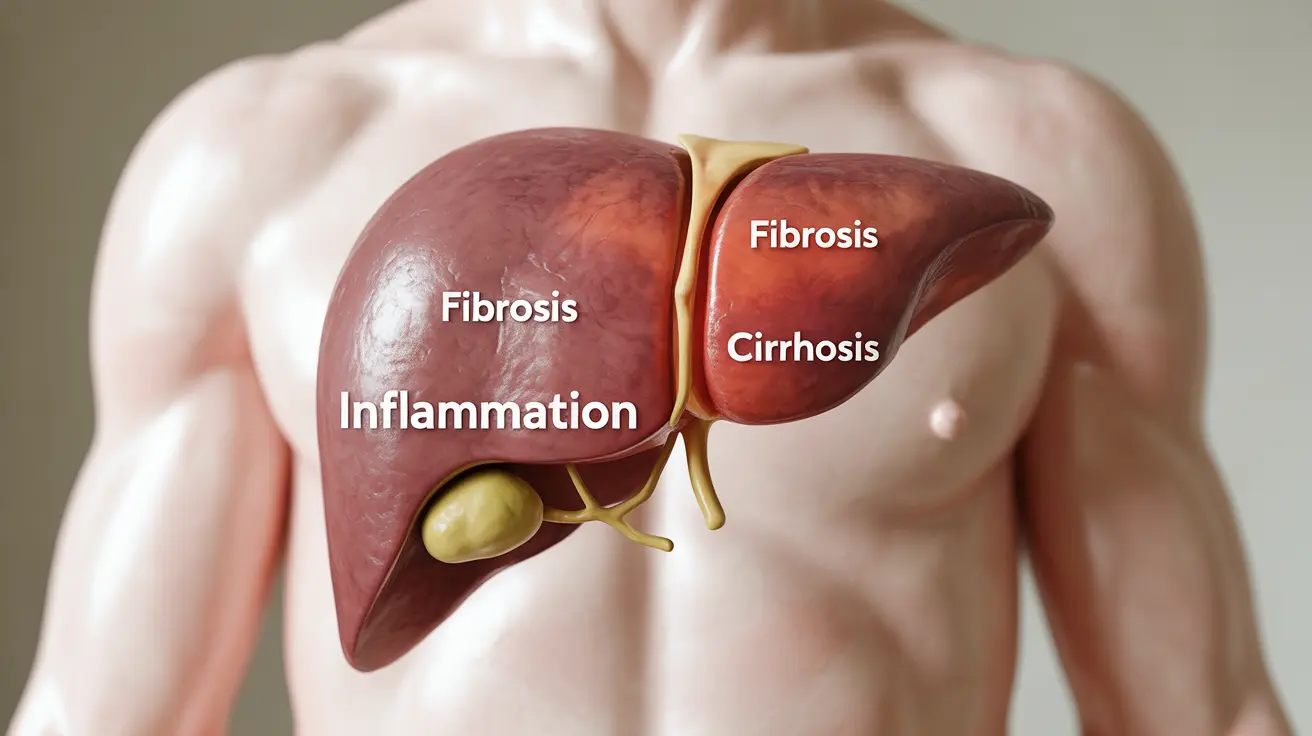Liver failure is a serious medical condition that develops progressively through distinct stages, from early inflammation to potentially life-threatening complications. Understanding these stages is crucial for early detection, proper management, and improved outcomes. This comprehensive guide explores the progression of liver failure, its symptoms, and available treatment options at each stage.
Early Stages of Liver Failure
The initial stages of liver failure often begin with inflammation and may progress to fibrosis if left untreated. During these early phases, the liver can often heal itself with proper medical intervention and lifestyle changes.
Inflammation Stage
In this first stage, the liver becomes inflamed as it attempts to fight off injury caused by factors such as:
- Viral infections
- Alcohol consumption
- Toxic substances
- Autoimmune conditions
Early symptoms during this stage may include fatigue, mild abdominal discomfort, and slight changes in appetite. Many people might not notice these subtle signs, making regular medical check-ups important for those at risk.
Fibrosis Stage
If inflammation persists, scar tissue begins forming in the liver through a process called fibrosis. While more serious than inflammation, fibrosis can still be reversed with proper treatment and lifestyle modifications.
Advanced Stages of Liver Disease
Cirrhosis
Cirrhosis represents a more advanced stage where extensive scarring has occurred throughout the liver. Key symptoms include:
- Yellowing of the skin and eyes (jaundice)
- Fluid accumulation in the abdomen
- Mental confusion
- Easy bruising and bleeding
- Loss of muscle mass
End-Stage Liver Failure
This final stage occurs when the liver can no longer function adequately to sustain life. Symptoms become severe and may include:
- Severe cognitive dysfunction (hepatic encephalopathy)
- Kidney failure
- Serious bleeding problems
- Increased risk of infections
- Multiple organ dysfunction
Treatment Options Across Different Stages
Treatment approaches vary depending on the stage of liver failure and its underlying cause. Early intervention offers the best chance for positive outcomes.
Early Stage Treatments
During early stages, treatments focus on:
- Stopping alcohol consumption
- Managing underlying conditions
- Medications to reduce inflammation
- Dietary modifications
- Regular exercise
- Weight management if needed
Advanced Stage Interventions
For advanced liver failure, treatments may include:
- Medications to manage complications
- Regular monitoring of liver function
- Management of portal hypertension
- Evaluation for liver transplantation
- Specialized nutritional support
Frequently Asked Questions
What are the early symptoms and signs of the different stages of liver failure?
Early signs include fatigue, loss of appetite, and mild abdominal pain. As the condition progresses, symptoms become more severe, including jaundice, confusion, and fluid retention.
How can liver damage in the inflammation and fibrosis stages be treated or reversed?
Early-stage liver damage can often be reversed through lifestyle changes, abstaining from alcohol, treating underlying conditions, and following prescribed medications. Regular medical monitoring is essential.
What complications and symptoms develop when liver disease progresses to cirrhosis and end-stage liver failure?
Advanced stages bring serious complications including hepatic encephalopathy, bleeding disorders, kidney failure, and increased risk of liver cancer. Multiple organ systems may be affected.
What lifestyle changes and medical treatments can help slow the progression of liver disease through its stages?
Key interventions include stopping alcohol consumption, maintaining a healthy diet, regular exercise, weight management, and treating underlying conditions. Medical treatments vary based on the cause and stage of liver disease.
When is a liver transplant necessary for someone with advanced liver failure or cirrhosis?
Liver transplantation becomes necessary when the liver can no longer function adequately despite medical treatment, when quality of life is severely impacted, or when there's a high risk of death from liver failure complications.




